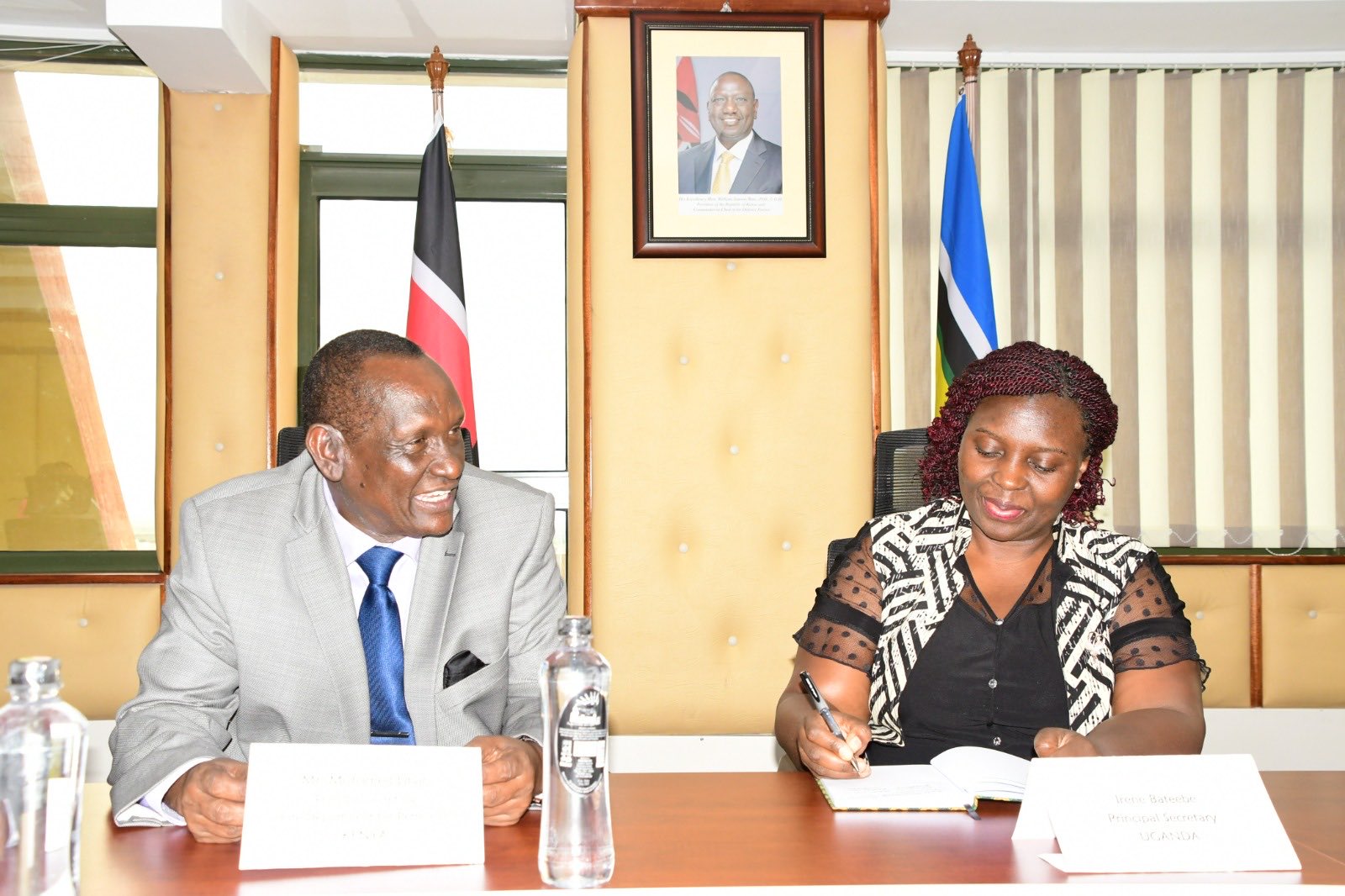The Uganda National Oil Company, UNOC is now sure to implement its mandate of sole importation of petroleum products.
This follows the signing of the Tripartite Agreement between UNOC and the governments of Uganda and Kenya on Thursday 16th May, 2024 as witnessed by presidents Yoweri Museveni and William Ruto at State House, Nairobi.
Last week, UNOC and Kenya pipeline Company signed the Transportation and Storage Agreement (TSA) between themselves, at the Ministry of Energy and Petroleum Offices in Nairobi after several weeks of negotiations and discussions.
“This takes us closer to acquiring the first petroleum products transportation vessel, said Assistant Commissioner Petroleum Supply Department, John Friday.
Friday hailed the Government of Kenya for facilitating the new sole importation business.
UNOC hence assumed full responsibility for the importation of petroleum products and distributing them to marketing companies, marking a significant shift in the nation’s energy landscape.
Kenya’s Principal Secretary for the State Department for Petroleum, Mohamed Liban assured his Ugandan counterpart, Irene Batebe, of Kenya support and commitment to the transition process, security for supply of the petroleum products through Kenya.
This is a result of President Museveni’s assent to the Petroleum Supply (Amendment) Act, 2023, which is aimed at streamlining the petroleum importation activities.
It largely rids the supply chain of middlemen, especially Kenyan and Kenya based companies, which are accused of fueling price hikes and supply disruptions.
While defending the Bill in parliament last year, Energy and Mineral Development Minister, Ruth Nankabirwa said the law would fortify the government’s ability to ensure a consistent supply of petroleum products, diversify supply routes, and shield Ugandans from fuel cartels that have historically influenced pricing, causing financial strain for citizens at the pump.
Uganda’s fuel products prices are usually higher in the region mainly because of the complex supply chain, but also because of the tougher taxation in Uganda. The country, unlike its neighbors, has also avoided introduction of a subsidies.
The government of Uganda decided to take on Kenya’s policy shift from the Open Tender System (OTS) to Government-to-Government system (G2G), which meant a longer process and the involvement of many stakeholders. This further influences fuel pump prices.
Uganda consumes close to 7 million litres of fuel per day, with more than 90 percent imported through Kenya and the rest via Tanzania.
It started with president Museveni’s challenge to the authorities to explain why Uganda could not import fuel directly from refining companies, cutting out the middlemen.
The Transportation and Storage Agreement will also enable UNOC to utilize its branches in Kenya to enable collaboration with the Kenya Pipeline Company, the Energy and Petroleum Regulatory Authority of Kenya among others.
The idea of an exclusive importation mandate for UNOC was proposed in 2020 by the company, while first delivery under the newly amended law was expected in February 2024, but failed due to legal challenges.
Companies in Kenya filed a case to block EPRA from issuing the permit to UNOC to import petroleum products but withdrew it in March.
In the meantime, Uganda also sued Kenya for denying her the right to use the KPC infrastructure, before Nairobi in March this year saying it would issue UNOC the license.
The company will now go ahead and implement its plans to directly buy the products from the Middle East.


